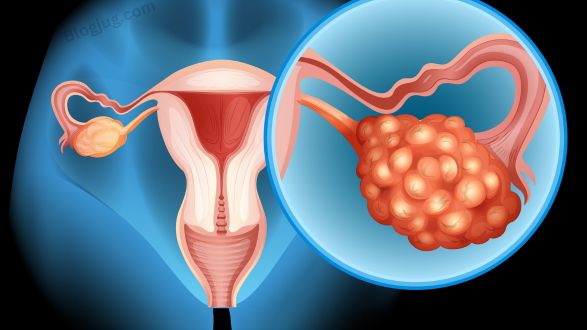
What is anal cancer?
Cell growth that begins in the anal canal is known as anal cancer. At the end of the rectum is a little tube called the anal canal. The anal canal is the exit point for stool from the body.
Symptoms of anal cancer include anal pain, blood in the stool, and rectal bleeding. It may cause a bump or enlargement as it grows. These symptoms can occasionally be misdiagnosed as hemorrhoids.
The majority of patients with anal cancer in the past underwent surgery to remove the cancer. This procedure frequently required creating a new pathway for waste to exit the body. Chemotherapy and radiation therapy are currently used in the majority of anal cancer treatments. Using this method may avoid the need for surgery.
What are the symptoms of anal cancer?
Anal cancer signs and symptoms include:
1. Blood in the stool.
2. Anal itching.
3. bleeding coming from the rectum or anus.
4. A pain in the anus region.
5. A growth or mass in the anal canal.
6. Having to use the bathroom more frequently.
What Causes of anal cancer?
A malignancy of the anal canal is brought on by changes in DNA within the cells. The instructions that inform a cell what to do are encoded in its DNA. Instructions on how to divide and expand at a given rate are encoded in the DNA of healthy cells. The cells have a set expiration date built into their programming. The changes in cancer cells convey different instructions. The changes give the cancer cells instructions to multiply quickly. Cancer cells are able to proliferate after healthy cells die. There are more cells as a result of this.
Tumors can arise from the combination of cancerous cells. The tumor could spread and eat away at healthy body tissue. Cancer cells have the ability to divide and spread to other areas of the body over time. Spreading cancer is referred to as metastatic cancer.
Human papillomavirus, or HPV, is regarded to be the primary cause of the majority of anal malignancies. A common virus called HPV is spread through intercourse. Most people never experience any infection-related problems. It usually vanishes by itself. However, on rare occasions, the virus may alter cells in a way that can result in cancer.
Risk factors
The following factors could raise your risk of anal cancer:
1. Being exposed to human papillomavirus, also called HPV: A frequent virus that is spread through intercourse is HPV. It usually doesn’t create any issues and goes away on its own for most people. For others, it results in cellular alterations that may give rise to an assortment of cancers, including anal cancer.
2. Increasing number of sexual partners: Your risk of contracting HPV increases with the number of sexual partners you have and your partner’s number of partners.
3. Having anal sex: Anal cancer risk is higher in those People who have receptive anal sex.
4. Smoking cigarettes: Cigarette smokers are more likely to develop anal cancer.
5. Having a history of cancer: Anal cancer risk is higher in those who have had vulvar, vaginal, or cervical cancer.
6. Having a weak immune system: An increased risk of anal cancer may arise from medications or illnesses that compromise the body’s ability to fend off germs. Individuals who take immuno-suppressive medications, such as those recovering from organ transplants, are among individuals with compromised immune systems. A number of medical disorders, including HIV infection, can potentially compromise immunological function.
Complications
Rarely does anal cancer spread to other bodily areas. It is discovered that very few malignancies have spread. Those that do are very challenging to cure. The liver and lungs are the most likely places for anal cancer to spread.
Prevention
Take steps to reduce your risk
There’s no foolproof method to stop anal cancer. To your chance of reducing anal cancer:
1. Practice safer sex: By taking precautions against sexually transmitted infections, you can lower your risk of developing anal cancer. This can entail limiting the number of sexual partners you have and using a condom each time you have sex.
2. Consider the HPV vaccine: Getting vaccinated against HPV can lower your risk of developing anal cancer and other malignancies linked to HPV. Consult your medical staff to determine whether you should have the HPV vaccination.
3. Don’t use tobacco: Don’t start using tobacco if you don’t already. If you use tobacco products of any type now, talk with a healthcare professional about strategies to help you quit.
Ask about anal cancer screening
Tests for cancer can identify precancerous cells that have the potential to turn into anal cancer as well as anal cancer itself. Sometimes, medical experts advise screening for those who have a high chance of developing anal cancer.
Anal cancer may be very likely to affect you if you:
1. Have HIV.
2. Do you take medication to regulate your immune system following an organ transplant?
3. Have been found to have precancerous cells in their vulva, cervix, scrotum, or penis.
Screening tests might include:
1. Anal Pap test: An medical expert takes a sample of cells from your anal canal during an anal Pap test. The cells are examined in a laboratory to look for malignant cells and cells that have the potential to develop into cancer.
2. Anal HPV test: Anal cells are tested for HPV infection as part of the anal HPV test.
3. Digital rectal exam: A medical practitioner puts a gloved, lubricated finger into the anus during a digital rectal exam. The medical practitioner feels for growths or other indications of malignancy in the rectum and anal canal.
Regarding who should be screened for anal cancer and what tests to use, medical groups cannot agree. When anal cancer is tiny and easier to treat, screening can find it. However, research hasn’t shown that screening for anal cancer can save lives. Discuss the advantages and disadvantages of screening with your medical team.









2 thoughts on “Anal Cancer: Symptoms, Causes, and Prevention”